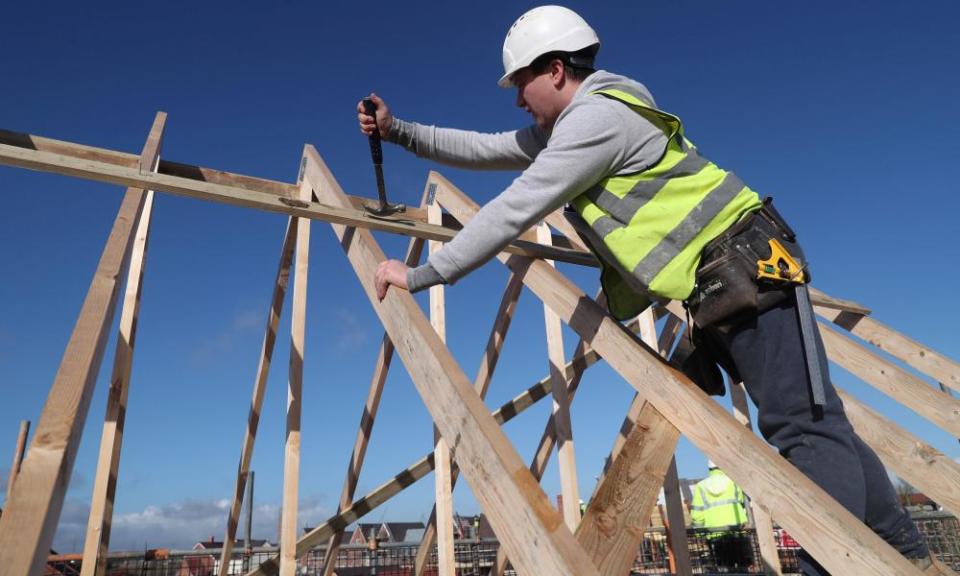Taylor Wimpey shores up defences against US activist investor

Record house prices, cheap mortgages, a stamp duty holiday and the “race for space” during the pandemic have meant huge rewards for UK housebuilders, Taylor Wimpey included.
In the first half of 2021, the UK’s third-largest housebuilder finished a record number of homes, returned to profit, and upgraded forecasts for the full year, the results for which it will publish in March.
But the company has become the latest target of unwanted attention from US activist investor Elliott Advisors, which has also picked battles with the Argentinian government, mining giant BHP and Britain’s second-biggest drugmaker, GSK, among others.
A month ago, the New York hedge fund went public with its demands on Taylor Wimpey, revealing in a nine-page public letter to Taylor Wimpey chair Irene Dorner that it was one of the company’s top five investors and wanted the housebuilder to find a new chief executive from outside the organisation.
Elliott was attracted to Taylor Wimpey because of Britain’s acute housing shortage and the firm’s hidden potential, including its land bank
In typical fashion, Elliott was scathing about Taylor Wimpey’s current leadership’s “operational and strategic missteps,” and called for an experienced external candidate to succeed Pete Redfern as chief executive. The letter came a few days after Redfern announced he would be stepping down in 2022 after 15 years at the helm (he denied that the decision was prompted by pressure from Elliott). In 2006, Redfern became the youngest FTSE 100 chief executive when, at 37, he took charge of George Wimpey and led a merger with rival Taylor Woodrow the following year.
Taylor Wimpey says it is at an advanced stage in its search for a replacements, looking at internal and external candidates, including from outside the housebuilding sector. Elliott is pushing for it to choose someone from within the industry and is thought to prefer either Crest Nicholson chief Peter Truscott, who previously ran Galliford Try and also spent 30 years at Taylor Wimpey; former Persimmon boss Dave Jenkinson, who quit last year in a row over build quality (and after a controversial £45m payout); and Barratt deputy chief executive and chief operating officer Steven Boyes.
Analysts say Truscott is the most likely to get the job.
From within Taylor Wimpey, another strong candidate is group operations director Jennie Daly, who has long been talked about as a possible successor to Redfern.
“She has lots of experience in strategic land [buying] and planning, which is the lifeblood of housebuilding,” said Anthony Codling, chief executive of property firm Twindig. “She’d also bring a great deal of operational expertise.”
If appointed, Daly would be the only female chief executive of a major housebuilder; Dorner is the only female chair in a male-dominated industry. There was speculation that Jeff Fairburn, the Persimmon boss ousted after a public outcry over his proposed £110m bonus, was also being lined up for the job at Taylor Wimpey, as Elliott had also backed the takeover of east Midlands-based Avant Homes by Berkeley DeVeer, a builder controlled by Fairburn, last April. However, Avant and Fairburn swiftly denied that he had any interest in the job.
Analysts said Elliott was attracted to Taylor Wimpey because of Britain’s housing shortage and the firm’s hidden potential, including its land bank, but some believed it needed to improve its operational performance. Its shares have fallen by a quarter since February 2020.
Clyde Lewis of Peel Hunt said: “Elliott has some valid points. Of the major housebuilders, TW has probably been the quietest in the past few years. Persimmon has gone through a lot of management change; Barratt has made more progress in terms of strategy and margins. TW hasn’t evolved much. There’s probably a modest amount of support [behind Elliott] from other investors.”
Related: Shortages and planning delays hinder UK housebuilding – survey
In its criticism of Taylor Wimpey, Elliott cited its “failed large-sites strategy”, which it said had led to cost overruns and sale-price erosion in 2019, as well as the £500m fund-raising and £1.7bn splurge on new land in summer 2020. It noted that the firm had suffered the sector’s biggest decline in housebuilding volumes in 2020, with a 39% drop compared with Barratt at 29% and Persimmon at 14%.
The company has defended its record, noting that it was the first major builder to shut all its sites when the pandemic first hit. The housebuilder has pointed to its record first-half profits for 2021 and its upgraded forecasts for the full year. It also said that the equity increase enabled it to snap up land at low prices, investing for the future in the hope of reaping stronger growth in 2023.
Despite all that, Elliott looks to be shaping up for its next fight.

 Yahoo Finance
Yahoo Finance 